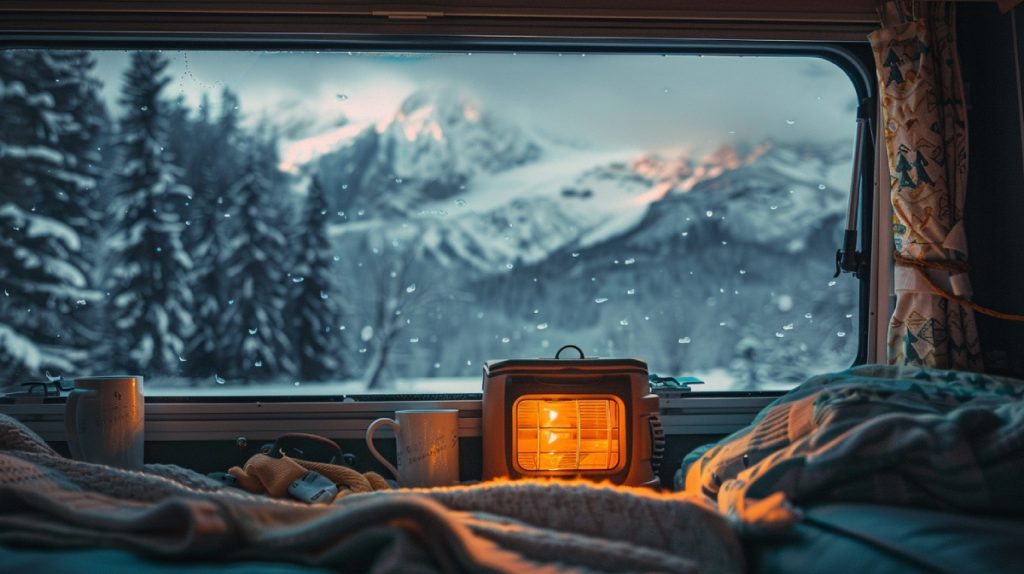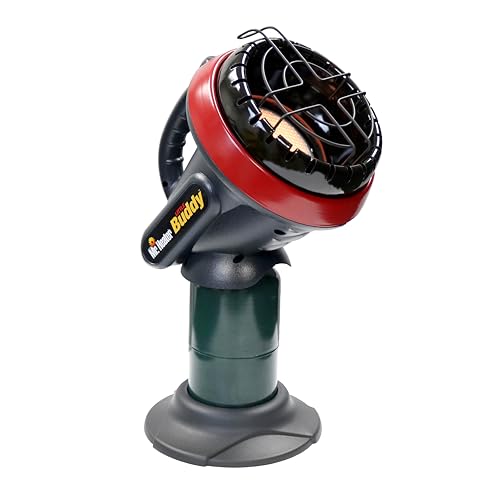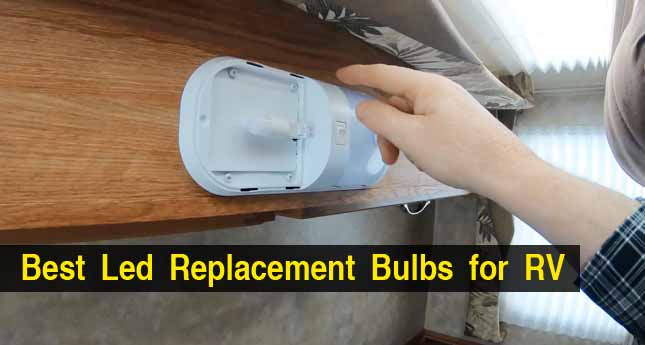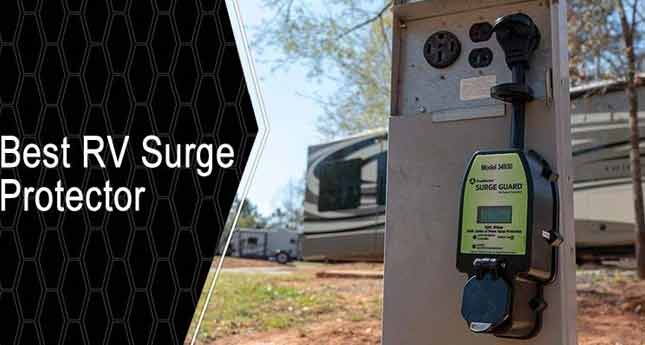Last Updated on September 10, 2024
Keeping cozy is a top priority when boondocking in your RV. The Mr. Heater Buddy is compact and heats up quickly using propane, making it a popular choice. Consider the Dura Heat TT-360 for larger spaces, which offers 30K to 40K BTUs.
Electric options like the Comfort Deluxe Infrared Heater are also great, especially when you have power. Don’t forget safety features like tip-over protection and oxygen depletion sensors. Choosing the right heater can dramatically enhance your camping experience. If you want all the details on the best options, there’s much more to uncover.
Key Takeaways
- Choose heaters with appropriate BTU ratings for your RV size to ensure effective heating during cold nights.
- Opt for portable models with lightweight designs and built-in handles or wheels for easy transport and setup.
- Prioritize safety features like oxygen depletion sensors and tip-over shut-off to ensure safe operation in confined spaces.
- Consider the heater’s run time efficiency, especially for models compatible with larger propane tanks for extended use.
- Look for heaters designed for both indoor and outdoor use to maximize versatility during boondocking adventures.
Mr. Heater Buddy Portable Propane Radiant Heater
- POWERFUL RADIANT HEAT: This portable gas heater provides cozy, sun-like warmth; with advanced...
- IMPROVED SAFETY FEATURES: The propane buddy heater has enhanced the performance of its tip-over...
- RELIABLE IGNITION: Equipped with a durable Piezo igniter; this LP heater offers quick, safe ignition...
Regarding RV boondocking, the Mr. Heater Buddy Portable Propane Radiant Heater is a must-have for your adventures.
This compact heater, weighing just 10.6 pounds, delivers an impressive 4,000 to 9,000 BTU per hour, warming spaces up to 225 square feet. It’s perfect for tents, campers, or even your garage.
You can easily connect it to 1-pound or 20-pound propane cylinders. Plus, safety is a priority with features like an oxygen depletion sensor and accidental tip-over shut-off.
You’ll appreciate the efficient heating when you’re out in the cold; it can elevate temperatures from 36°F to 83°F in under 30 minutes.
Best For: The Mr. Heater Buddy Portable Propane Radiant Heater is best for outdoor enthusiasts and campers looking for a reliable and portable heating solution in cold conditions.
Pros:
- Compact and lightweight, making it easy to transport and store.
- Rapid heating capability, efficiently warming spaces quickly.
- Multiple safety features, including an oxygen depletion sensor and tip-over shut-off for peace of mind.
Cons:
- Requires propane fuel, which may need to be purchased and stored separately.
- Limited heating capacity, effective only for spaces up to 225 square feet.
Mr. Heater Little Buddy Propane Heater (3800-BTU)
- 3800 BTU PER HR & COVERAGE: This propane radiant heater delivers 3,800 BTU with a 45° heating...
- SAFETY FIRST WITH THIS INDOOR CORDLESS HEATER: Featuring an automatic low oxygen shut-off system...
- PORTABLE HEATER W/ SIMPLE ON/OFF BUTTONS & RUNTIME: This portable propane heater is simple to...
The Mr. Heater Little Buddy Propane Heater is a fantastic option for your RV boondocking adventures. With a heating capacity of 3,800 BTU/hr, it efficiently warms spaces up to 95 square feet.
Its compact dimensions (11x11x11 inches) and lightweight design (just 1 pound) make it incredibly portable. You can run it for 5.6 hours using a 1-pound propane cylinder, which is easy to replace.
Safety features like low-oxygen shut-off and tip-over protection guarantee you can use it with peace of mind. Just remember to provide proper ventilation.
This heater’s versatility makes it ideal for tents, garages, or even emergencies, earning it high user ratings for reliability and ease of use.
Best For: The Mr. Heater Little Buddy Propane Heater is best for campers, outdoor enthusiasts, and anyone needing portable heating for small enclosed spaces.
Pros:
- Compact and lightweight design makes it easy to transport and store.
- Safety features such as low-oxygen shut-off and tip-over protection enhance user security.
- Versatile heating capability suitable for various settings like tents, garages, and emergencies.
Cons:
- Requires proper ventilation to ensure safe operation.
- Limited coverage area of 95 square feet may not be sufficient for larger spaces.
Dura Heat TT-360 Propane Tank Top Heater
- Built-in tip over shut off device requires that heater and tank be in upright position for proper...
- Tank must be placed on stable flat surface only
- Heater may not operate properly in windy conditions.
For RV boondockers seeking efficient and portable heating solutions, the Dura Heat TT-360 Propane Tank Top Heater stands out with its impressive 360-degree heat output. It’s easy to transport when weighing just 4.87 pounds and measuring 8.9 inches on each side.
This heater can warm up to 1,000 square feet, with variable heat settings ranging from 30K to 40K BTU. Its quiet infrared heating is a bonus, ensuring you can enjoy your surroundings without noise distractions.
However, you’ll want to use it in stable conditions, as it’s designed for outdoor use only and may struggle in windy weather. Remember to watch propane levels, as it consumes fuel quickly—about 12 hours on low for a 20-lb tank.
Best For: RV boondockers and outdoor enthusiasts looking for a portable and efficient heating solution in uninsulated spaces.
Pros:
- Quiet infrared heating allows for a distraction-free environment.
- Lightweight and portable design makes it easy to transport and set up.
- Effective heating capability for areas up to 1,000 square feet.
Cons:
- High propane consumption can lead to frequent refueling needs.
- Not suitable for windy conditions, which may affect performance.
Gasland MHA18BN Propane Radiant Heater (18,000 BTU)
- Built-in Safety Features Our propane radiant heater is equipped with Tip-Over and Low Oxygen...
- Cut Down Your Electricity Bills With the Gasland Portable Cabinet Heater—no electricity required....
- Mobile & Space-Saving Design The Gasland portable propane radiant heater features a convenient,...
Looking for a reliable heating solution while RV boondocking? The Gasland MHA18BN Propane Radiant Heater packs a punch with 18,000 BTUs, warming up to 450 sq. ft.
This portable LP gas heater operates without electricity, perfect for off-grid adventures. You’ll appreciate its ultra-quiet performance and energy efficiency, helping you save on electricity bills.
Safety is a priority, as it features Tip-Over and Low Oxygen Shut-off mechanisms. It’s easy to move around with built-in rolling wheels and an Easy-Carry handle.
Users find it effective in cold conditions, though some mention minor issues after extended use. Check gas lines for leaks and keep the wheels free for hassle-free mobility.
Best For: Those seeking a portable and reliable heating solution for RV boondocking or off-grid adventures.
Pros:
- Ultra-quiet operation ensures a peaceful environment while heating.
- Energy efficient, operating without electricity, ideal for reducing power costs.
- Built-in safety features like Tip-Over and Low Oxygen Shut-off provide peace of mind.
Cons:
- Requires regular maintenance checks for gas line leaks to ensure safe operation.
Mr. Heater Buddy Portable RV Radiant Heater
- 4,000- to 9,000-BTU radiant heater for spaces up to 225 square feet. Approved for indoor/outdoor...
- When operating the heater at altitudes over 7,000 FT above sea level the heater may shut off.
- Auto shut-off if tipped over, if pilot light goes out, or if detects low oxygen levels
Designed for RV enthusiasts and boondockers, the Mr. Heater Buddy Portable RV Radiant Heater is an excellent choice for staying warm on your adventures.
With a BTU range of 4,000 to 9,000, it efficiently heats spaces to 225 square feet using clean-burning propane. It’s incredibly portable, weighing just 1 pound and featuring a fold-down handle.
This heater can raise temperatures from 36°F to 83°F in around 30 minutes, perfect for chilly nights. Safety’s a priority, and it boasts auto shut-off features for tipped-over or low-oxygen situations.
It connects seamlessly to a 1 lb. propane cylinder and can even be adapted for larger gas supplies. Overall, this heater’s performance and user-friendly design make it a reliable companion for boondocking.
Best For: RV enthusiasts and boondockers looking for an efficient and portable heating solution during their outdoor adventures.
Pros:
- Efficient Heating: Capable of heating spaces up to 225 square feet and raising temperatures significantly quickly.
- Portable Design: It weighs only 1 pound and features a fold-down handle for easy transport.
- Safety Features: Includes auto shut-off for tipped-over situations and low oxygen detection, ensuring safe use indoors.
Cons:
- Fuel Dependency: Requires propane, which may not be readily available in all locations.
- Altitude Limitation: May shut off at altitudes over 7,000 feet, limiting usability in high-altitude environments.
Comfort Deluxe Infrared Space Heater with Remote
- Safe around children and pets
- Efficient copper ptc (no heating bulbs to have to replace)
- Cool to the touch
The Comfort Deluxe Infrared Space Heater with Remote is ideal for RV boondockers seeking efficient warmth without sacrificing safety. With powerful 1500 watts, it effectively heats spaces to 250 square feet, making it perfect for your cozy RV.
The copper PTC heating element guarantees quiet operation and better heat retention without drying out the air. You’ll appreciate its cool-to-the-touch exterior and overheat protection, making it safe around kids and pets.
The included remote control lets you adjust the temperature quickly, while its automatic on/off feature keeps things hassle-free. Weighing just 25 pounds, it’s portable enough for your adventures.
Best For: RV boondockers seeking an efficient and safe heating solution for their living space.
Pros:
- Quiet operation due to the efficient copper PTC heating element.
- Cool-to-the-touch exterior and overheat protection make it safe for children and pets.
- Portable design at just 25 pounds, ideal for travel and use in various indoor spaces.
Cons:
- Lack of temperature readout may be inconvenient.
- Difficulty in warming larger spaces beyond the recommended coverage area.
Hiland Propane Patio Heater (48,000 BTU)
If you’re seeking a powerful outdoor heating solution for your RV boondocking adventures, the Hiland Propane Patio Heater delivers an impressive 48,000 BTUs of heat output.
At 87 inches tall, it effectively warms areas between 78.54 and 176.71 square feet, making it perfect for chilly evenings.
Weighing 42.2 pounds, it features wheels for easy mobility and an anti-tip device for safety. While assembly is mostly straightforward, be prepared for potential issues with parts or instructions.
Its hammered silver finish resists fingerprints, enhancing its outdoor appeal. However, some users report rusting over time, so consider covering it when not in use. Overall, it’s a solid choice for keeping you cozy during outdoor escapades.
Best For: Those looking for a reliable outdoor heating solution for gatherings or RV boondocking adventures.
Pros:
- High Heat Output: Delivers an impressive 48,000 BTUs, effectively warming areas up to 176.71 square feet.
- Safety Features: Equipped with an anti-tip device for enhanced safety during use.
- Mobility: Comes with wheels, making it easy to move around your outdoor space.
Cons:
- Durability Concerns: Rusting after exposure to the elements, requiring maintenance or cover.
Hampton Bay Tabletop Propane Gas Patio Heater 11,000 BTU Stainless Steel
For those seeking a reliable heat source during RV boondocking, the Hampton Bay Tabletop Propane Gas Patio Heater stands out with its impressive 11,000 BTU output.
Its attractive stainless steel design adds style and guarantees durability for outdoor use. You’ll appreciate how quickly it fires up, providing warmth and a calming glow for your evenings outside.
While assembly can be tricky, many users find its performance worthwhile, especially in cooler weather. However, the heater may unexpectedly turn off due to thermostat issues.
Consider using a larger propane tank with an adapter hose for better fuel efficiency. Overall, this heater offers great value and is highly recommended for enhancing your outdoor experiences.
Best For: Those looking for an effective and stylish heating solution for outdoor gatherings, particularly in cooler weather.
Pros:
- Attractive stainless steel design adds style and durability.
- Quick ignition and effective heating enhance outdoor experiences.
- Good value for performance, making it suitable for various spaces.
Cons:
- Assembly can be challenging.
- Heater may turn off unexpectedly due to thermostat issues.
BALI OUTDOORS Propane Patio Heater
- No Need to Install - This BALI OUTDOORS patio heater, less 5-minute set up without any tool , simply...
- Ultra-efficient Heating Coverage - The heater's glass tube gives an all-around view of dazzling...
- User-Friendly Design - The patio heater use exclusive spiral flame in a shatter-proof Borosilicate...
Looking for a heater that combines mobility with aesthetic appeal? The BALI OUTDOORS Propane Patio Heater might be just what you need.
Standing 70.87 inches tall and weighing 85.5 pounds, it’s designed for easy transport with its built-in wheels. With a heat output of 36,000 BTU, it covers an area of up to 101.73 square feet, making it perfect for cozy gatherings.
Its striking spiral flame in a shatter-proof glass tube adds ambiance, while the protective steel grill and auto shut-off tilt valve guarantee safety.
Assembly takes only five minutes without tools, and the user-friendly design includes a push-button ignition and temperature control knob. Just keep in mind it works best for close-proximity heating!
Best For: Users seeking an aesthetically pleasing outdoor heater for close gatherings in patios or balconies.
Pros:
- Attractive design featuring a spiral flame in a shatter-proof glass tube that enhances outdoor ambiance.
- Easy assembly in five minutes without needing tools, along with user-friendly ignition and temperature control.
- Portable with built-in wheels, making it convenient to move around outdoor spaces.
Cons:
- Limited heat output, requiring users to stay close for warmth, which may not be suitable for larger areas.
- Concerns about the durability of the glass tube and the fragility of the control knob.
How to Choose the Best RV Boondocking Heater?
When choosing a heater for RV boondocking, you must consider several key factors. Think about your heat output requirements, the type of fuel you want to use, and the safety features that will keep you secure. Additionally, the size and weight of the heater, along with whether you’ll use it indoors or outdoors, are essential for your setup.
Heat Output Requirements
Choosing the right heater for RV boondocking hinges on understanding heat output requirements, as BTU ratings directly impact how effectively you stay warm in various conditions. When selecting a heater, consider the BTU output, as models ranging from 4,000 to 9,000 BTUs can efficiently heat spaces to 225 square feet. A heater with around 3,800 BTUs might be sufficient for smaller RVs or areas, warming spaces up to 95 square feet.
Don’t overlook the heater’s run time. Some models offer around six hours of heat at lower BTU settings, essential for extended trips where refueling might be challenging. Also, consider the heater’s efficiency in cold conditions. You’ll want a unit that raises temperatures considerably in poorly insulated environments, ensuring you stay cozy during chilly nights.
Lastly, verify the heater is suitable for indoor use. Many models are designed specifically for enclosed spaces, minimizing the risk of carbon monoxide buildup and enhancing safety.
Fuel Type Considerations
Selecting the right fuel type is essential for maximizing your RV boondocking experience. Propane heaters are a popular choice because they offer higher BTU outputs, ranging from 4,000 to 18,000 BTUs, making them effective for heating spaces up to 450 square feet. Their portability and ability to function without electricity are perfect for off-grid camping.
When choosing a propane heater, verify it’s compatible with the available propane cylinders. Some models connect to small 1-pound cylinders, while others require a larger 20-pound tank. This compatibility can greatly affect your heating options.
Keep in mind that propane consumption varies depending on the heating settings. Some units may use as much as 0.099 gallons per hour at maximum output, which impacts how long you can run the heater based on your tank size.
Safety Features Needed
Guaranteeing your safety while heating your RV during boondocking is essential, so you should prioritize heaters equipped with important safety features. First and foremost, look for heaters with an Oxygen Depletion Sensor (ODS). This feature automatically shuts off the unit if oxygen levels drop to unsafe levels, allowing for safe indoor use in enclosed spaces.
Additionally, choose heaters with a tip-over shut-off feature. This safety mechanism immediately turns off the unit if it’s accidentally knocked over, preventing potential fire hazards. You’ll also want a reliable ignition system, like a piezo igniter, which allows for easy and safe lighting without the need for matches or lighters.
If you’re planning to boondock in mountainous areas, consider heaters designed for high-altitude performance. Some units shut off at elevations above 7,000 feet, essential for your adventures. Finally, verify that the heater requires minimal ventilation for safe operation, reducing the risk of carbon monoxide buildup in confined spaces.
Size and Weight
When considering a heater for RV boondocking, how much space and weight can you afford to spare? The size of the heater should match the available space in your RV, guaranteeing it operates without obstruction and fits in designated storage areas. You’ll want a compact model for easy maneuvering within those tight spaces.
Weight is equally important. A lighter heater is easier to transport and install, which is essential when you’re traveling in an RV where space and mobility can be limited. Plus, the overall load of your RV affects fuel efficiency and stability while driving; choosing a lightweight option helps maintain that balance.
Make certain the heater’s design allows for secure placement without compromising safety or accessibility, especially in smaller RVs. You don’t want to deal with a cumbersome heater that takes up too much room or becomes a tripping hazard.
Indoor Vs. Outdoor Use
Choosing the right heater for your RV boondocking adventures hinges on whether you’ll use it indoors or outdoors. Indoor heaters are designed with safety in mind, featuring low-oxygen shut-off and tip-over protection to prevent accidents in enclosed spaces. When using these heaters, it’s vital to guarantee proper ventilation to avoid carbon monoxide buildup.
On the other hand, outdoor heaters are typically more robust and can deliver higher BTU outputs, making them ideal for larger areas or extreme weather. You won’t need to worry about ventilation as much with these units, but remember that their coverage area is generally much larger, perfect for warming up patios or campsites.
When selecting a heater, consider where you’ll spend most of your time. An indoor heater will keep you warm and safe if you plan to cozy up inside your RV. But if you want to enjoy the outdoors, an outdoor heater will provide the necessary warmth for your adventures.
Run Time Efficiency
Run time efficiency is essential for maximizing your heating setup while RV boondocking. When you’re evaluating heaters, keep the BTU output in mind. Heaters with lower outputs, like those around 4,000 BTUs, often provide longer run times, sometimes lasting up to 6 hours on a single propane cylinder. Choosing propane heaters with variable heat output options allows you to adjust BTU settings, extending the run time by using less fuel when lower heat levels suffice.
The type of propane cylinder you use also plays a significant role. Larger 20-pound cylinders typically offer longer heating durations than 1-pound disposable cylinders, with some heaters consuming propane at rates as low as 0.099 gallons per hour. Efficient heaters designed for smaller spaces, around 225 square feet or less, can enhance fuel usage, leading to longer operational times in colder conditions.
Lastly, don’t overlook regular maintenance. Checking for propane leaks and ensuring peak ignition performance can enhance your heater’s efficiency, improving fuel consumption rates and prolonging run times on your adventures.
Portability and Mobility
Portability and mobility are important factors for a successful RV boondocking experience. When selecting a heater, consider its weight, as portable units can range from just 1 pound to over 40 pounds. This weight difference substantially affects how easily you can transport and set up the heater at your campsite.
Aim for compact dimensions, many portable heaters are around 11 inches or smaller, so they can fit into your RV’s limited storage space without a hassle.
Design features also play a significant role in mobility. Look for heaters equipped with built-in wheels or handles, which make it easier to relocate them when you’re setting up at different sites. Additionally, verify that your chosen heater can connect to standard propane tanks or disposable cylinders, as this flexibility is essential for boondocking.
Cost and Budget
When budgeting for a heater for RV boondocking, you’ll frequently need to weigh the initial purchase price against long-term operating costs. Start by considering both the price of the heater and the fuel expenses, as propane and electricity rates can vary considerably by location and season.
Assess the heater’s BTU output in relation to the space you need to heat. While higher BTU ratings may initially cost more, they can lead to quicker heating and potentially lower fuel consumption.
Don’t forget to factor in maintenance costs, since some heaters require more frequent servicing or replacement parts, which can impact your overall budget. Look for heaters with energy efficiency ratings or features that help reduce electricity or propane usage. These can save you money in the long run.
Lastly, consider the heater’s operational run time on different fuel sources. A heater that runs longer on less fuel may be more economical, especially during extended boondocking trips. Balancing these factors will help you choose a heater that fits your budget and keeps you cozy on your adventures.
Frequently Asked Questions
How Much Propane Do These Heaters Consume per Hour?
Propane consumption varies by heater type, but most consume between 0.5 to 1.5 gallons per hour. You’ll want to check specific models for exact rates to confirm you have enough fuel for your needs.
Can These Heaters Be Used Indoors Safely?
Yes, many of these heaters can be used indoors safely, but you’ll need to guarantee proper ventilation. Always check the manufacturer’s guidelines to avoid carbon monoxide buildup, and prioritize your safety while enjoying warmth.
What Is the Average Lifespan of These RV Heaters?
Did you know most RV heaters last around 10 to 20 years with proper care? When you choose a quality model and maintain it well, you can enjoy warmth on your travels for a long time.
Are There Any Maintenance Tips for RV Heaters?
To keep your RV heater running smoothly, check the filters regularly, clean the vents to prevent dust buildup, and inspect the fuel lines for leaks. Don’t forget to schedule an annual professional maintenance check.
How Do I Properly Store Propane Tanks While Boondocking?
You might think storing propane tanks is tricky, but it’s simple. Just keep them upright, away from heat sources, and in a well-ventilated area. Always secure them to prevent tipping during your travels.
Choosing the Right Heater: Finding the Perfect One for Your RV Trips
When you’re boondocking in your RV, staying warm is essential for a cozy adventure. Did you know that around 80% of RVers prefer propane heaters for their efficiency and portability?
With options like the Mr. Heater Buddy and Dura Heat TT-360, you can find the perfect fit for your needs. Remember to take into account factors like BTUs, fuel type, and safety features when choosing your heater. Stay warm and enjoy your outdoor escapades.
- POWERFUL RADIANT HEAT: This portable gas heater provides cozy, sun-like warmth; with advanced...
- IMPROVED SAFETY FEATURES: The propane buddy heater has enhanced the performance of its tip-over...
- RELIABLE IGNITION: Equipped with a durable Piezo igniter; this LP heater offers quick, safe ignition...
Last update on 2025-04-19 / Affiliate links / Images from Amazon Product Advertising API












